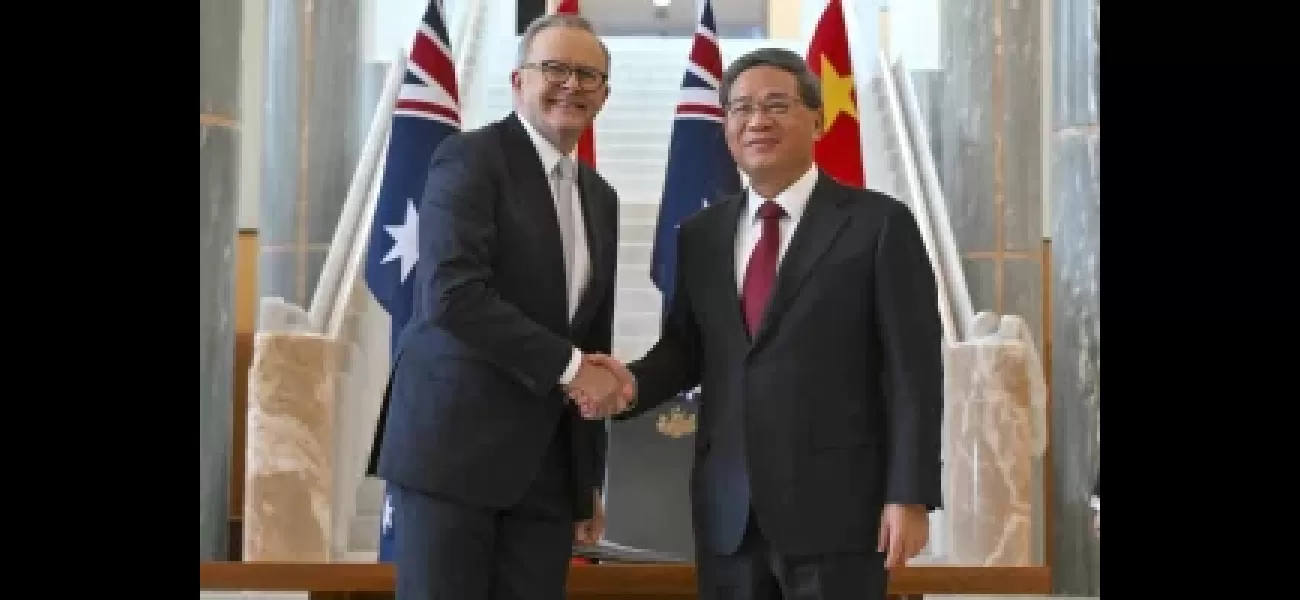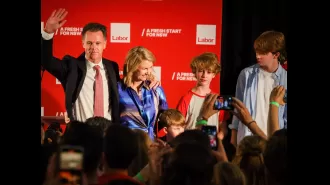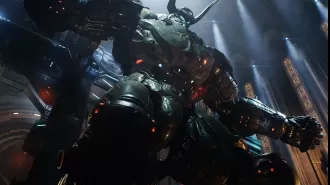China's leader has accepted Australia's proposal to handle their disagreements 'appropriately'
Chinese Premier Li Qiang and Australian Prime Minister Anthony Albanese agreed to address their nations' differences following a period of hostility with no minister-to-minister communication and trade barriers leading to a $13 billion loss for Australian exporters.
June 17th 2024.

The leaders of China and Australia, Premier Li Qiang and Prime Minister Anthony Albanese, met on Monday to discuss the current state of their nations' relationship. In the past, minister-to-minister contacts were banned and trade barriers were causing Australian exporters to lose billions of dollars every year. However, both leaders expressed a desire to properly manage their differences and improve their comprehensive strategic partnership.
Li, accompanied by senior ministers, had arrived in Australia over the weekend, making this the first visit by a Chinese premier in seven years. After their meeting, Li stated that the bilateral relationship was on the right track and that they had openly discussed their differences and agreed to handle them in a way that would benefit their partnership. Albanese also described the discussions as constructive and emphasized the importance of working together to promote a regional balance where no country dominates.
The relationship between China and Australia has significantly improved since Albanese's center-left Labor Party was elected in 2022, following years of conservative government. Many of the trade barriers that China had imposed in 2020, such as on coal, cotton, wine, barley, and wood, have been lifted. This is a significant development, as Beijing had previously banned minister-to-minister contacts and froze out the previous Australian government diplomatically.
Minister of Agriculture Murray Watt also mentioned that he would raise the issue of China's ban on Australian rock lobsters and exports from two beef processing plants. He saw Li's visit as an opportunity to continue the dialogue and address outstanding issues, as well as stabilize the relationship. Li also expressed China's interest in investing in Australia's critical minerals sector, which is crucial for the global shift towards renewable energy sources. He planned to visit a Chinese-controlled lithium processing plant in Western Australia to highlight this interest.
After Australia, Li was scheduled to stop in New Zealand, Malaysia, and then return to China. Australia shares the United States' concerns about China's dominance in critical minerals and control over supply chains in the renewable energy sector. Treasurer Jim Chalmers has recently ordered five Chinese-linked companies to divest their shares in a rare earth mining company, citing national security concerns. However, Watt clarified that Chinese investment is not banned in the sector as long as it meets national security criteria.
During a state lunch, Albanese told Li that they would not always agree, and it was important to address their disagreements instead of ignoring them. This was in response to a statement released by the Chinese Embassy in Canberra, where Li recommended shelving differences for the sake of improving relations. The two leaders also discussed recent clashes between their militaries in the South China Sea and Yellow Sea, which Australia believes put their personnel at risk.
The tension between the two nations has been exacerbated by Australian legislation that bans covert foreign interference in politics, the exclusion of Chinese-owned company Huawei from the national 5G network, and Australia's call for an independent investigation into the COVID-19 pandemic. China has expressed a desire for Australia to join a trade bloc known as the CPTPP and increase investment in critical minerals. However, China expert Benjamin Herscovitch from Australian National University believes that China will not receive any firm commitments from Australia during Li's visit.
Herscovitch also pointed out that Australia had already made a concession to China by not imposing sanctions on Chinese entities that support Russia in the conflict in Ukraine. He believes that this inaction is essentially giving China a free pass, while Australia's allies are imposing sanctions. Li's visit has also attracted attention from various groups, including pro-China demonstrators, human rights activists, and democracy advocates. As Li's motorcade made its way through Adelaide and Canberra, these groups lined the streets to express their opinions.
Li, accompanied by senior ministers, had arrived in Australia over the weekend, making this the first visit by a Chinese premier in seven years. After their meeting, Li stated that the bilateral relationship was on the right track and that they had openly discussed their differences and agreed to handle them in a way that would benefit their partnership. Albanese also described the discussions as constructive and emphasized the importance of working together to promote a regional balance where no country dominates.
The relationship between China and Australia has significantly improved since Albanese's center-left Labor Party was elected in 2022, following years of conservative government. Many of the trade barriers that China had imposed in 2020, such as on coal, cotton, wine, barley, and wood, have been lifted. This is a significant development, as Beijing had previously banned minister-to-minister contacts and froze out the previous Australian government diplomatically.
Minister of Agriculture Murray Watt also mentioned that he would raise the issue of China's ban on Australian rock lobsters and exports from two beef processing plants. He saw Li's visit as an opportunity to continue the dialogue and address outstanding issues, as well as stabilize the relationship. Li also expressed China's interest in investing in Australia's critical minerals sector, which is crucial for the global shift towards renewable energy sources. He planned to visit a Chinese-controlled lithium processing plant in Western Australia to highlight this interest.
After Australia, Li was scheduled to stop in New Zealand, Malaysia, and then return to China. Australia shares the United States' concerns about China's dominance in critical minerals and control over supply chains in the renewable energy sector. Treasurer Jim Chalmers has recently ordered five Chinese-linked companies to divest their shares in a rare earth mining company, citing national security concerns. However, Watt clarified that Chinese investment is not banned in the sector as long as it meets national security criteria.
During a state lunch, Albanese told Li that they would not always agree, and it was important to address their disagreements instead of ignoring them. This was in response to a statement released by the Chinese Embassy in Canberra, where Li recommended shelving differences for the sake of improving relations. The two leaders also discussed recent clashes between their militaries in the South China Sea and Yellow Sea, which Australia believes put their personnel at risk.
The tension between the two nations has been exacerbated by Australian legislation that bans covert foreign interference in politics, the exclusion of Chinese-owned company Huawei from the national 5G network, and Australia's call for an independent investigation into the COVID-19 pandemic. China has expressed a desire for Australia to join a trade bloc known as the CPTPP and increase investment in critical minerals. However, China expert Benjamin Herscovitch from Australian National University believes that China will not receive any firm commitments from Australia during Li's visit.
Herscovitch also pointed out that Australia had already made a concession to China by not imposing sanctions on Chinese entities that support Russia in the conflict in Ukraine. He believes that this inaction is essentially giving China a free pass, while Australia's allies are imposing sanctions. Li's visit has also attracted attention from various groups, including pro-China demonstrators, human rights activists, and democracy advocates. As Li's motorcade made its way through Adelaide and Canberra, these groups lined the streets to express their opinions.
[This article has been trending online recently and has been generated with AI. Your feed is customized.]
[Generative AI is experimental.]
0
0
Submit Comment





